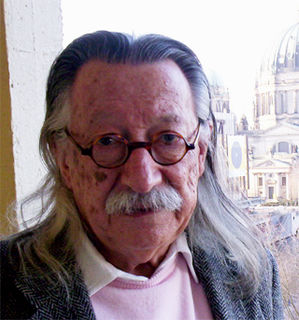A Quote by Alexandre Dumas
A rogue does not laugh in the same way that an honest man does; a hypocrite does not shed the tears of a man of good faith. All falsehood is a mask; and however well made the mask may be, with a little attention we may always succeed in distinguishing it from the true face.
Related Quotes
It may not be nice to be good, little 6655321. It may be horrible to be good. And when I say that to you I realize how self-contradictory that sounds. I know I shall have many sleepless nights about this. What does God want? Does God want goodness or the choice of goodness? Is a man who chooses the bad perhaps in some way better than a man who has the good imposed upon him? Deep and hard questions, little 6655321.
The problem of reconciling human suffering with the existence of a God who loves, is only insoluble so long as we attach a trivial meaning to the word "love", and look on things as if man were the centre of them. Man is not the centre. God does not exist for the sake of man. Man does not exist for his own sake. "Thou hast created all things, and for thy pleasure they are and were created." We were made not primarily that we may love God (though we were made for that too) but that God may love us, that we may become objects in which the divine love may rest "well pleased".
It was a dance of masks and every mask was perfect because every mask was a real face and every face was a real mask so there was no mask and there was no face for there was but one dance in which there was but one mask but one true face which was the same and which was a thing without a name which changed and changed into itself over and over.
A man's physical hunger does not prove that man will get any bread; he may die of starvation on a raft in the Atlantic. But surely a man's hunger does prove that he comes of a race which repairs its body by eating and inhabits a world where eatable substances exist. In the same way, though I do not believe (I wish I did) that my desire for Paradise proves that I shall enjoy it, I think it a pretty good indication that such a thing exists and that some men will.
I'm happy that now we reveal something about the true Israel, because, you know, now it's Purim, when all the Jews putting mask. And once, we used to have a liberal mask. The most famous mask now in Israel is the mask of a soldier who murdered in cold blood a wounded prisoner of war. Those are the mask that most of the Israeli kids now are using. So, now, when the mask and the true is the same, maybe it's time for Democrats here to stop supporting Israel, if they care about Jews.
Man is not a machine, ... although man most certainly processes information, he does not necessarily process it in the way computers do. Computers and men are not species of the same genus. .... No other organism, and certainly no computer, can be made to confront genuine human problems in human terms. ... However much intelligence computers may attain, now or in the future, theirs must always be an intelligence alien to genuine human problems and concerns.
The superior man, when resting in safety, does not forget that danger may come. When in a state of security he does not forget the possibility of ruin. When all is orderly, he does not forget that disorder may come. Thus his person is not endangered, and his States and all their clans are preserved.



































